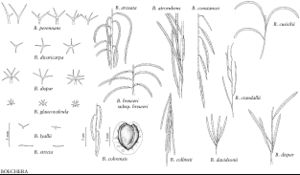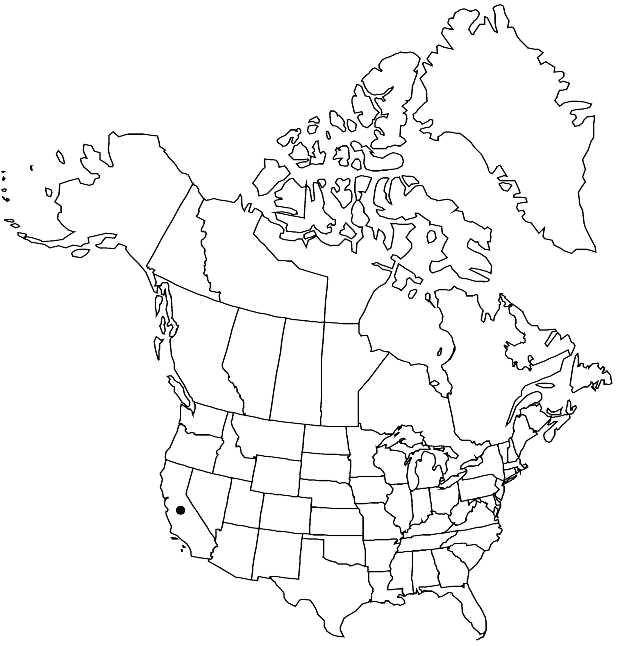Boechera constancei
Novon 13: 384. 2003.
Perennials; long-lived; sexual; caudex woody. Stems usually 1 per caudex branch, arising from center of rosette, elevated above ground surface on woody base, 1.2–3 dm, glabrous throughout. Basal leaves: blade narrowly oblanceolate, 1.5–4 mm wide, margins entire, ciliate, trichomes (simple, mixed with fewer stalked, 2-rayed), 0.3–0.8 mm, surfaces glabrous. Cauline leaves: 6–12, not concealing stem; blade auricles absent, surfaces of distalmost leaves glabrous. Racemes 5–15-flowered, unbranched. Fruiting pedicels arched, strongly recurved proximally, 4–12 mm, glabrous. Flowers divaricate-ascending at anthesis; sepals glabrous; petals creamy white, 6–8 × 1.5–2 mm, glabrous; pollen ellipsoid. Fruits pendent, not appressed to rachis, usually secund, straight or slightly curved, edges often somewhat undulate (not parallel), 4–7.5 cm × 3–3.5 mm; valves glabrous; ovules 18–28 per ovary; style 2.5–5 mm. Seeds uniseriate, 3–4 × 2.5–3 mm; wing continuous, 0.5–1 mm wide. 2n = 14.
Phenology: Flowering May.
Habitat: Steep ridges, serpentine slopes
Elevation: 1200-1900 m
Discussion
Boechera constancei was originally treated as a variety of Arabis (Boechera) suffrutescens; it is easily separated from that species by its non-auriculate cauline leaf blades, longer (6–8 versus 4.5–6 mm) petals that are creamy white (versus purple or rose-tipped), much longer style (2.5–5 versus 0.4–1.2 mm), and exerted anthers. This distinctive sexual diploid is thus far known only from the west slope of the Sierra Nevada in Plumas County.
Selected References
None.

